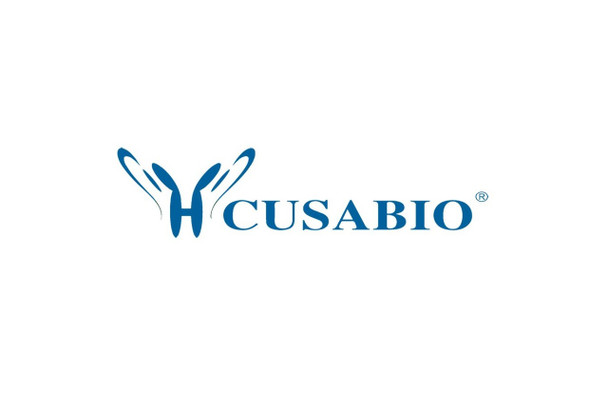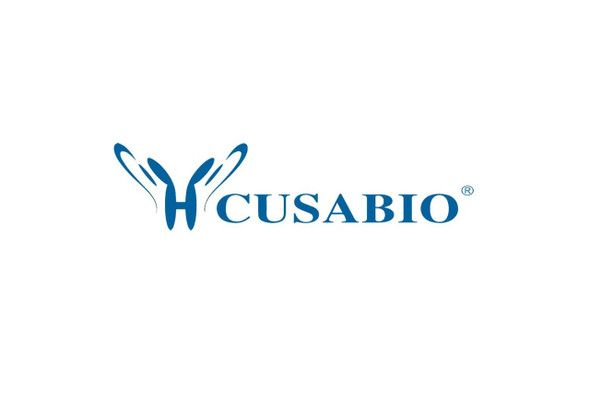Cusabio Human Recombinants
Recombinant Human Ras-related protein Rap-2b (RAP2B) | CSB-EP019327HU
- SKU:
- CSB-EP019327HU
- Availability:
- 13 - 23 Working Days
Description
Recombinant Human Ras-related protein Rap-2b (RAP2B) | CSB-EP019327HU | Cusabio
Alternative Name(s): MGC20484; RAP 2B; RAP2A; Rap2b; RAP2B member of RAS oncogene family; RAP2B_HUMAN; Ras family small GTP binding protein RAP2B; Ras related protein RAP 2B; Ras related protein RAP2B; Ras-related protein Rap-2b; Small GTP binding protein
Gene Names: RAP2B
Research Areas: Signal Transduction
Organism: Homo sapiens (Human)
AA Sequence: MREYKVVVLGSGGVGKSALTVQFVTGSFIEKYDPTIEDFYRKEIEVDSSPSVLEILDTAGTEQFASMRDLYIKNGQGFILVYSLVNQQSFQDIKPMRDQIIRVKRYERVPMILVGNKVDLEGEREVSYGEGKALAEEWSCPFMETSAKNKASVDELFAEIVRQMNYAAQPNGDEGCCSAC
Source: E.coli
Tag Info: N-terminal GST-tagged
Expression Region: 1-183aa
Sequence Info: Full Length
MW: 47.2 kDa
Purity: Greater than 90% as determined by SDS-PAGE.
Relevance: Small GTP-binding protein which cycles between a GDP-bound inactive and a GTP-bound active form. Involved in EGFR and CHRM3 signaling pathways through stimulation of PLCE1. May play a role in cytoskeletal rearrangements and regulate cell spreading through activation of the effector TNIK. May regulate membrane vesiculation in red blood cells.
Reference: "RAP2B: a RAS-related GTP-binding protein from platelets." Ohmstede C.A., Farrell F.X., Reep B.R., Clemetson K.J., Lapetina E.G. Proc. Natl. Acad. Sci. U.S.A. 87:6527-6531(1990)
Storage: The shelf life is related to many factors, storage state, buffer ingredients, storage temperature and the stability of the protein itself. Generally, the shelf life of liquid form is 6 months at -20?/-80?. The shelf life of lyophilized form is 12 months at -20?/-80?.
Notes: Repeated freezing and thawing is not recommended. Store working aliquots at 4? for up to one week.
Function: Small GTP-binding protein which cycles between a GDP-bound inactive and a GTP-bound active form. Involved in EGFR and CHRM3 signaling pathways through stimulation of PLCE1. May play a role in cytoskeletal rearrangements and regulate cell spreading through activation of the effector TNIK. May regulate membrane vesiculation in red blood cells.
Involvement in disease:
Subcellular Location: Recycling endosome membrane, Lipid-anchor, Cytoplasmic side
Protein Families: Small GTPase superfamily, Ras family
Tissue Specificity: Expressed in red blood cells (at protein level).
Paythway:
Form: Liquid or Lyophilized powder
Buffer: If the delivery form is liquid, the default storage buffer is Tris/PBS-based buffer, 5%-50% glycerol. If the delivery form is lyophilized powder, the buffer before lyophilization is Tris/PBS-based buffer, 6% Trehalose, pH 8.0.
Reconstitution: We recommend that this vial be briefly centrifuged prior to opening to bring the contents to the bottom. Please reconstitute protein in deionized sterile water to a concentration of 0.1-1.0 mg/mL.We recommend to add 5-50% of glycerol (final concentration) and aliquot for long-term storage at -20?/-80?. Our default final concentration of glycerol is 50%. Customers could use it as reference.
Uniprot ID: P61225
HGNC Database Link: HGNC
UniGene Database Link: UniGene
KEGG Database Link: KEGG
STRING Database Link: STRING
OMIM Database Link: OMIM









